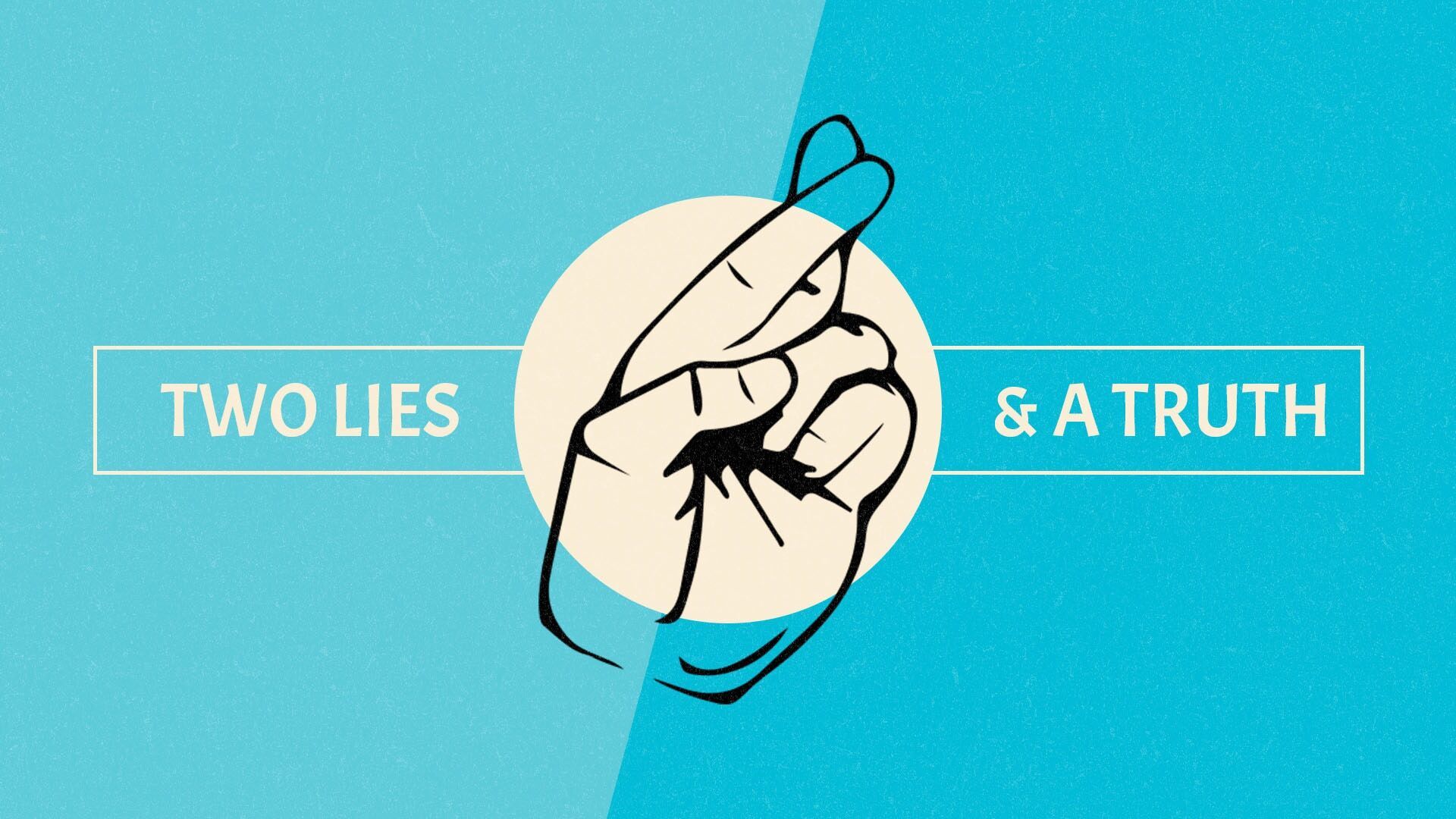The Scandal of the Cross (1 Corinthians 1:17-2:5)

Big Idea: We need the message of the cross because it’s better than any other message; because it’s good news for the low; and because it’s the only message we’ve got.
I was a relatively young man. One day, for a reason I can’t remember, I was in the storage area above my office. Instead of putting my weight on the wooden joists that held the ceiling in place, I stepped between the joists. I’ll never forget the feeling of that drywall breaking as my foot began to fall through the ceiling to the room below.
I don’t know if you’ve ever experienced the sensation of falling through a ceiling, but I don’t recommend it. I somehow managed to stop my fall, but the hole in the ceiling mocked me until I could fix it. I had placed my weight on something that couldn’t bear it. The results were embarrassing and could have been disastrous.
My question for us to consider tonight is this: On what are you putting the weight of your life?
We live in an age of unprecedented wisdom and knowledge. We have amazingly beautiful pieces of literature, the accumulated wisdom of centuries, the latest discoveries from fields like psychology, neuroscience, and medicine. We’re tempted to put our faith in these things. And yet, according to the passage we just read, none of these can bear the weight of our lives. They were not intended for that.
We just read a passage from a letter that the Apostle Paul wrote to a church in Corinth. Corinth was a city in what we would today call Greece. It was renowned for its prosperity, diversity, and liberal attitudes within a culture that loved wisdom. One scholar calls it the “the New York, Los Angeles, and Las Vegas of the ancient world” (Gordon Fee). Corinthians would have seen themselves as every bit as sophisticated as the most urbane Torontonian.
And yet for all of its wealth, all of its freedom, and all of its wisdom, Paul explains that human wisdom is not enough. The best literature, the most profound insights, the most helpful advice are not enough. There’s only one message that is enough: the scandalous message of a crucified Savior hanging on a cross.
There is only one message that can bear the weight of our lives: the message of the cross. The passage before us explains why we need this message: because it’s better than any other message; because it’s good news for those who are low; and because, in the end, it’s the only message we have.
Here’s the first reason why we need the message of the cross:
It’s Better Than Any Other Message (1:18-25)
We live in a world of competing messages, and so did Paul. There’s a word that appears fifteen times in this passage: wisdom. Because the culture in that city valued wisdom, Paul is scathing in his critique of human wisdom. Even though Paul was trained in Greek and Jewish wisdom, he argues that it’s not enough. In fact, he argues that human wisdom is foolish.
Look at verses 19 to 20:
For it is written,
“I will destroy the wisdom of the wise,
and the discernment of the discerning I will thwart.”
Where is the one who is wise? Where is the scribe? Where is the debater of this age? Has not God made foolish the wisdom of the world?
Paul is helping us understand an important principle: human wisdom will never give us the insight that we need because it doesn’t tell us what we need to know about God. It will never give us the answers we’re looking for in the hospital room or the funeral home. Human wisdom at its best always disappoints, because it can never bear the weight of our lives and the brokenness we experience in this life
What are the alternatives? Paul tells us in verse 18, and then verses 22 to 24.
For the word of the cross is folly to those who are perishing, but to us who are being saved it is the power of God…For Jews demand signs and Greeks seek wisdom, but we preach Christ crucified, a stumbling block to Jews and folly to Gentiles, but to those who are called, both Jews and Greeks, Christ the power of God and the wisdom of God.
According to Paul, the message of the cross is scandalous. That’s where we get the phrase “the scandal of the cross.” The word “stumbling block” in verse 23 can be translated as scandal. The message of the cross is shocking and offensive. It trips us up. Nobody likes it.
In Roman times, crucifixion was the ultimate penalty. It was reserved for the worst criminals. Jesus’ death was a scandal for religious and irreligious people alike. Religious people would have expected a miracle that would show Jesus was legitimate. They wouldn’t have expected a death. Messiahs don’t die. Like today, irreligious people would have preferred an interesting new idea. The crucifixion would have been an affront to the educated, sophisticated thinker. Nobody would look to a battered, bloody body of a naked man being executed in the most shameful way imaginable for the wisdom they need.
And yet Paul says that this is exactly where we should look if we want ultimate wisdom, because as he says in verse 25, “the foolishness of God is wiser than men, and the weakness of God is stronger than men.”
What exactly does Paul mean by the wisdom of God? It’s that the Son of God came in the most radical act of generosity ever displayed. He gave up all of his privileges as God. He lived the perfect life that we never could. And although he is the only person who’s ever lived who didn’t sin, he willingly died in the place of sinful men and women. He died in the place of his enemies — in our place, as our substitute — so that we could be forgiven and restored. “At the cross in holy love God through Christ paid the full penalty of our disobedience himself” (John Stott).
Only the cross reveals the sacrificial love of God who was willing to go from the highest place to the lowest place for you. Only the cross shows us that “he was bound that we might be free; he suffered terrible disgrace so that we would never be put to shame; though he was innocent, he was sentenced to death so that we might be acquitted before the judgment of God. On the cross he humbled himself to the deepest humiliation, hellish anguish of body and soul. He cried out with a loud voice, “My God, my God, why have you forsaken me?” so that we might be brought to God and never be forsaken by him. (Mark Dever)
Only the cross reveals, as C.S. Lewis said, a God who stoops to conquer.
Human wisdom will never reveal that. The most important message in the world is one we’d never figure out because it runs opposite to the way we’d think. To understand God’s wisdom, we need the cross. It’s better than any other message.
Here’s the second reason we need this message:
It’s Good News for Those Who Are Low (1:26-31)
You look like a pretty fine bunch. But I sat in a room on Bay Street a few weeks ago with a group of professionals. Through a web app, these professionals anonymously submitted their greatest fears, which were then displayed on the screen. Hundreds of us were unmasked. We’re accomplished. We’re well-liked. Our lives look good on Instagram. But underneath we all struggle with the same fears. We’re a lot messier than we let on.
The Corinthians looked like they had it all together. They valued success. Perhaps they considered themselves too sophisticated for a crude message like the cross.
But in verses 26 to 31 of chapter 1, Paul reminds them of who they were and are:
For consider your calling, brothers: not many of you were wise according to worldly standards, not many were powerful, not many were of noble birth. But God chose what is foolish in the world to shame the wise; God chose what is weak in the world to shame the strong. (1 Corinthians 1:26–27)
The Corinthians felt strong. But Paul reminds them of the truth. We’re not as together as we think. Strip away the façade, and we realize: we don’t need good news for the strong. We need good news for us when we’re weak, when we struggle, when we’re low.
In every area of life, it seems like the strong get ahead. The most talented thrive. The bullies push to get ahead. And if you’re weak, then step out of the way before you’re crushed.
But Paul says that with God, it’s the very opposite. God uses the same design as he did with the cross: he uses the foolish to shame the wise, which is good news for those of us who have grown tired of trying to be impressive and wise.
Are you wise according to human wisdom? That wisdom will only get you so far. No matter how successful we are, no matter how great our lives look, our wisdom and accomplishments won’t ultimately bear the weight of life. Besides, it’s exhausting. Those who chase wisdom, success, and meaning, always pushing themselves ahead, know how exhausting and unsatisfying this can be. The best among us know that our best isn’t enough to fill our deepest needs.
The question for you tonight is not whether you can become better and wiser. The question is whether you can stoop low enough to receive the foolish message of the cross. It’s not just good news for the low, but only the low can receive it. When we realize that we’re low, we’re in a perfect position for God to raise us up through the power of the cross. As Martin Luther said:
God saves no-one but sinners. He instructs no-one but the foolish and stupid. He enriches none but paupers. And he makes alive only the dead.
How low are you tonight? Do you want what only God can give? Do you want what Paul describes in verse 30: righteousness, sanctification, and redemption? In other words, do you want to be completely changed from the inside out? There’s only one way. Lower yourself to receive the message of the cross.
We need the message of the cross because it’s better than any other message, and because it’s good news for the low. There’s one more reason we need this message:
In the End, It’s the Only Message We’ve Got (1:17; 2:1-5)
Paul could have come to the Corinthians and impressed them with his wisdom. He was trained by the leading philosophers of the day. He could have wowed them with this rhetorical skill. But he didn’t. In fact, he refused to. Why? He explains:
For Christ did not send me to baptize but to preach the gospel, and not with words of eloquent wisdom, lest the cross of Christ be emptied of its power. (1 Corinthians 1:17)
And I, when I came to you, brothers, did not come proclaiming to you the testimony of God with lofty speech or wisdom. For I decided to know nothing among you except Jesus Christ and him crucified. And I was with you in weakness and in fear and much trembling, and my speech and my message were not in plausible words of wisdom, but in demonstration of the Spirit and of power, so that your faith might not rest in the wisdom of men but in the power of God. (1 Corinthians 2:1-5)
What’s Paul saying here? He’s saying, “I could wow you with wisdom. I could blow you away with rhetoric and argument. I could entertain and impress you.” He could have done these things, but he refused to. The most powerful thing he has to offer is the simple message of Jesus and him crucified. If you want power, that’s where to look. How can you know you’ve found a good church? By its singular focus on the cross.
Friends, the power of Christianity isn’t found in passionate music, dynamic speakers, or charismatic leaders but in the simple message of a Savior who gave his life for sinners. A famous preacher once said, “Other men may preach the gospel better than I, but no man can preach a better gospel.”
Why is the message of the cross so powerful? Because the cross tells us that God lowered himself into the abyss of our sin and suffering. The cross is not another religion telling us how to be good in our own power. It tells us the story of God's costly, sacrificial rescue effort on our behalf. It’s a message that’s changed history and millions of lives, and it can change your life too.
Hear this again. We’re all looking for a powerful message. We read books and listen to podcasts and TED Talks looking for insights that will transform our lives. Don’t get me wrong. We can benefit from great books and talks, but in the end there’s one message that towers above them all.
Friends, the only place to safely stand is on the scandalous, counterintuitive message of the cross. You can discover the message you most need tonight, a message that will change your life. The only hope for you is to turn from trying to bear the weight of your life on your own, or putting that expectation on your joy, money, career, reputation, spouse or accomplishments. Those will never bear your weight. They weren’t meant to. I invite you to look to Jesus, this crucified Jesus, and put all your hope on him. Put all your weight on him. Look to Jesus and live.
If you have questions, I encourage you to speak with someone around you. Ask them how the scandalous message of the cross has changed them, and how it can change you. Come talk to any of the pastors up here at the front. It would be our privilege to spend time with you as you consider what the message of the cross means for you.
David Platt said, “Your only hope in this life is found in the brutal, bloody, humiliating, horrifying death of a naked man on a wooden post.” That’s all we’ve got. It’s all that we need. There are millions of people whose lives have been changed. We need the message of the cross because it’s better than any other message; because it’s good news for the low; and because it’s the only message we’ve got. Trust that message tonight. Put the weight of your life there.
Let’s pray.
Father, our hope tonight is not human wisdom. All human wisdom pales beside the message of Jesus Christ, which is folly to those who are perishing, but to those who are being saved is the very power of God.
Jesus, We give you glory for stooping to conquer. Thank you for humbling yourself by becoming obedient to the point of death, even death on a cross. Thank you for saving us through the scandalous message of the cross.
Spirit, help us receive that message tonight in new and deeper ways. May our greatest treasure become nothing but Jesus Christ and him crucified. Help us to rest not in human wisdom, but in the powerful and scandalous message of Jesus crucified. We pray this in Jesus’ name. Amen.





